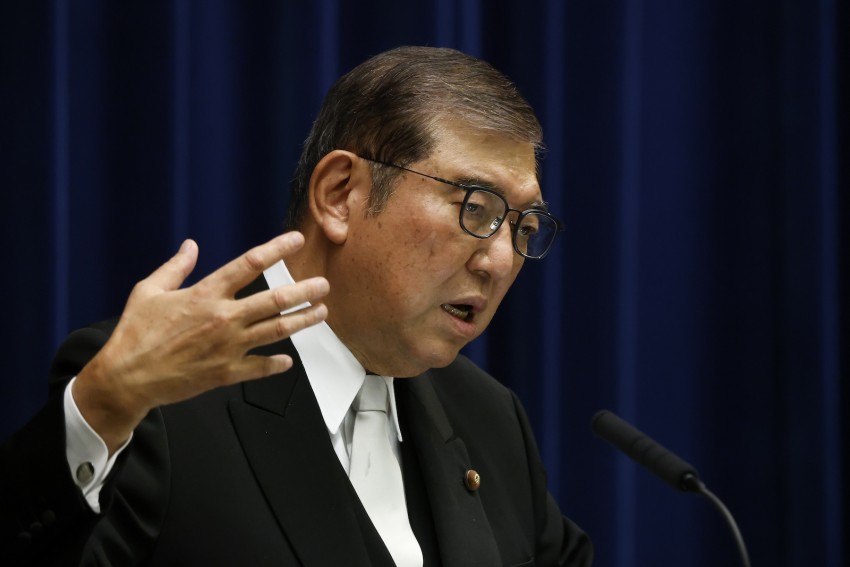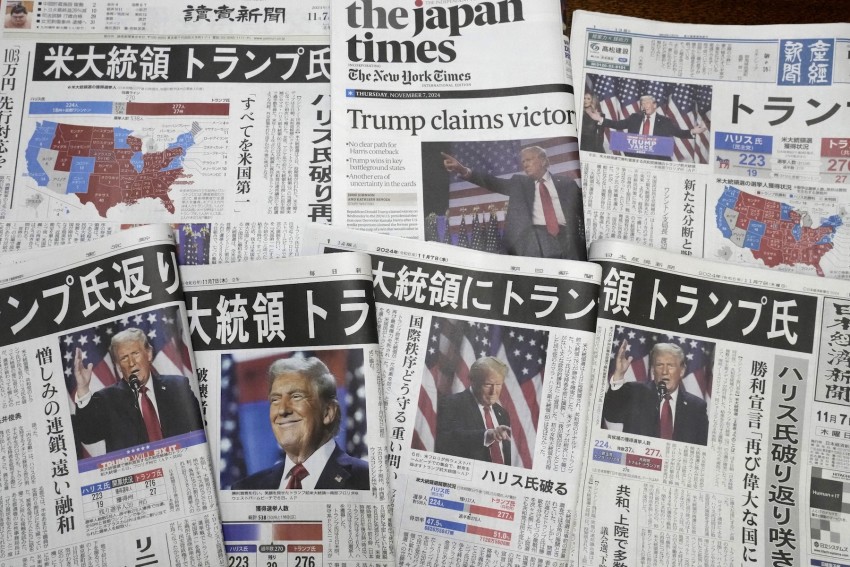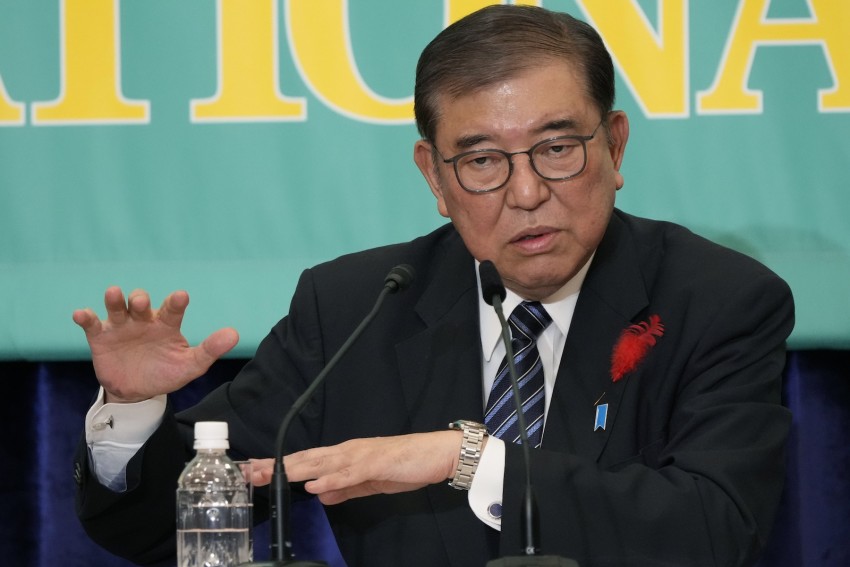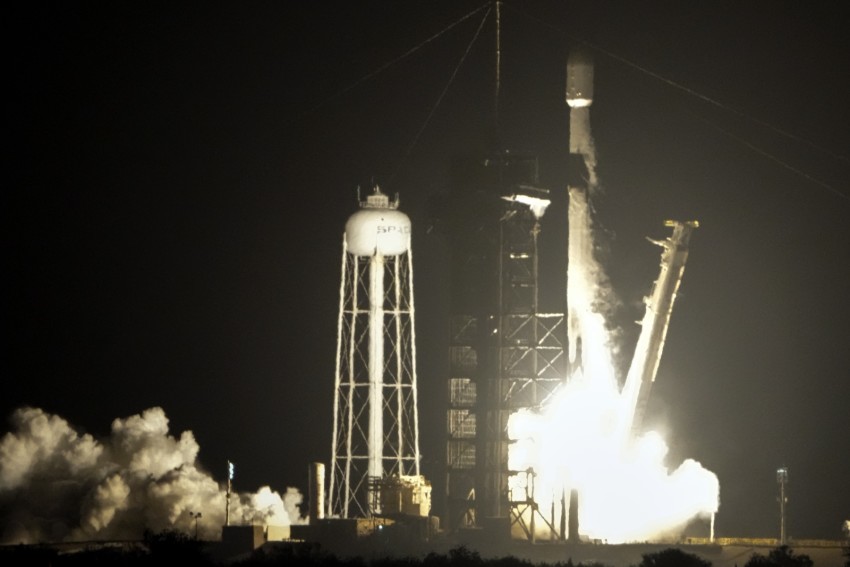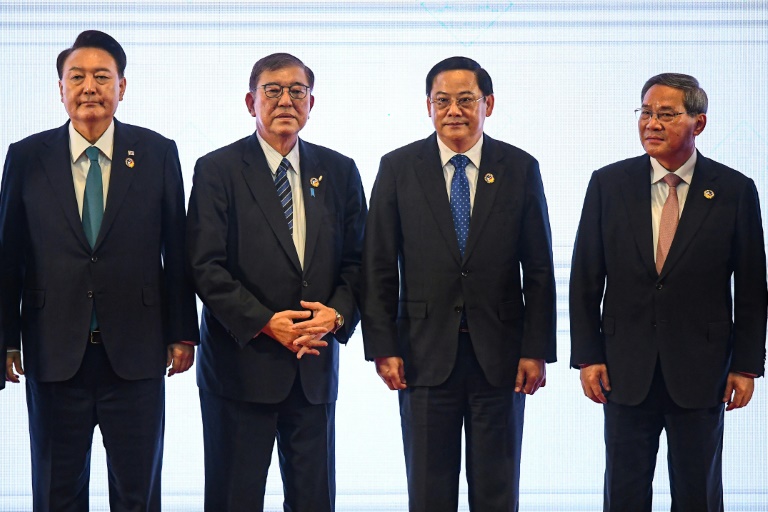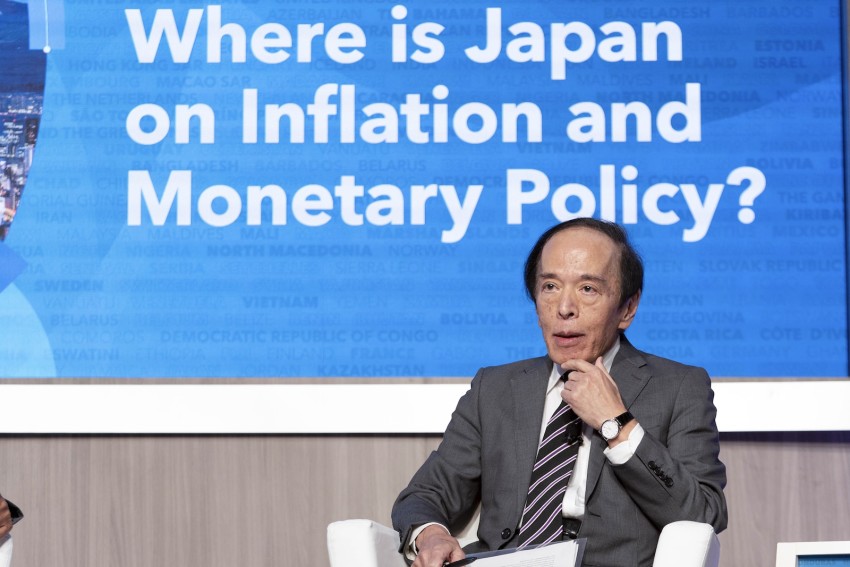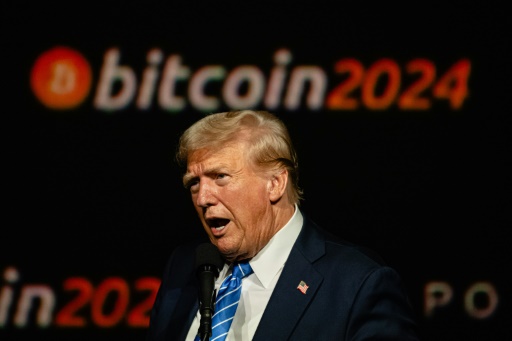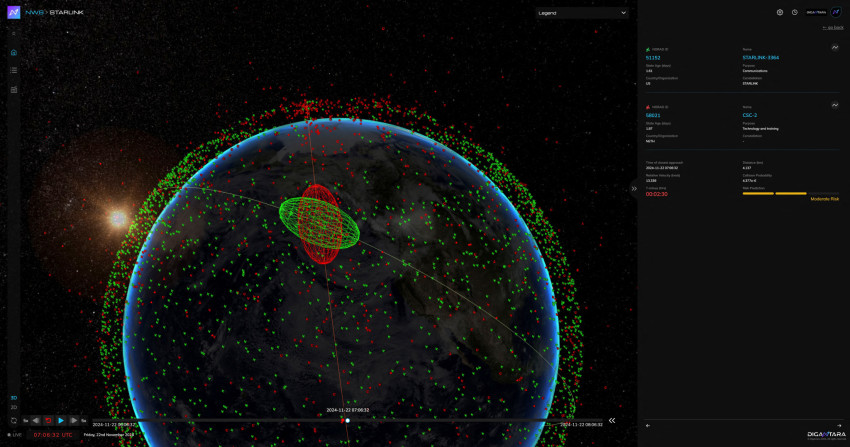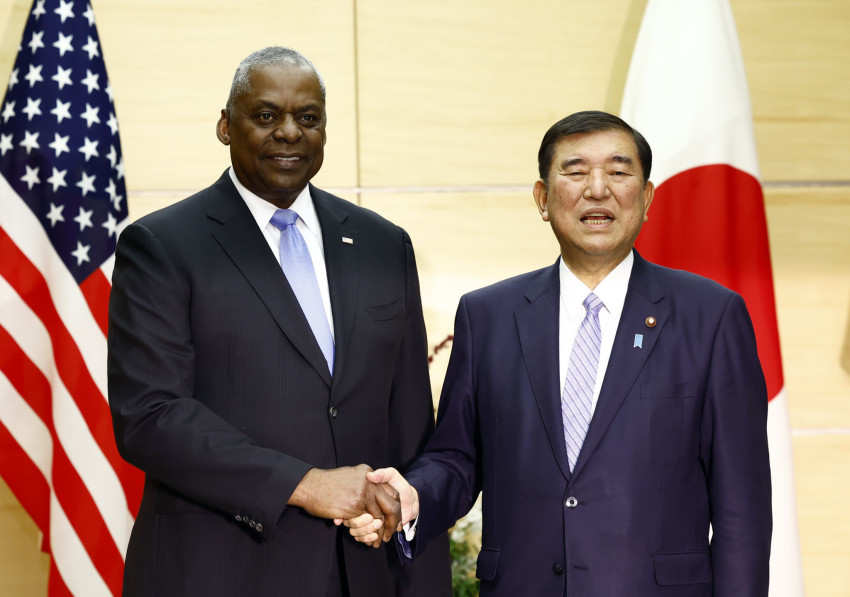Ishiba eyes stronger ASEAN ties, expresses concern over South China Sea
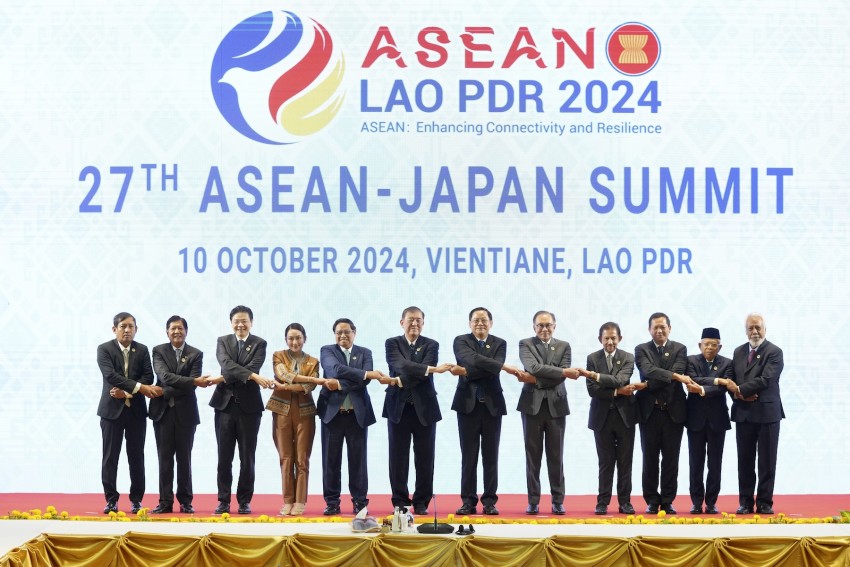
New Japanese Prime Minister Shigeru Ishiba on Thursday agreed with his Association of Southeast Asian Nations counterparts to beef up their cooperation, while expressing serious concern over "militarization and coercive acts" in the South China Sea, the Japanese government said.
At the ASEAN-Japan summit in Vientiane, Ishiba, who is making his first overseas trip since taking office last week, also said he opposes actions that violate national sovereignty in the East China Sea, amid heightening concerns over Beijing's military assertiveness in airspace and waters near his country.
On Taiwan, a self-ruled democratic island that China views as a renegade province to be reunified with the mainland, by force if necessary, Ishiba reiterated Japan's position that peace and stability across the Taiwan Strait is "important" for the regional and international communities.
Ishiba, meanwhile, said Tokyo will continue to "closely communicate with China at various levels," according to the Japanese Foreign Ministry, as the two East Asian powers aim to build constructive and stable bilateral relations.
Making a foray on to the diplomatic stage after taking office, Ishiba is keen to build close ties with ASEAN and assure the grouping of Japan's continuing pursuit of a "free and open Indo-Pacific," amid China's growing economic and military clout in the region and Pyongyang's repeated ballistic missile tests.
Prior to his departure, the Japanese prime minister said he would not raise the idea of creating a NATO-style alliance in Asia during his meetings in the Lao capital, with members of the Association of Southeast Asian Nations wary it could provoke China and bring instability to the region.
Japanese government officials have said the leaders at the ASEAN Plus Three meeting could discuss the situation in the South China Sea, an area claimed almost entirely by China where it is involved in confrontations with the Philippines.
The ASEAN Plus Three dialogue has mainly focused on regional economic cooperation, including enhancing the Chiang Mai Initiative Multilateralization, a scheme to provide emergency liquidity created in the aftermath of the 1997 Asian financial crisis.
The talks are part of three days of ASEAN-related summit meetings from Wednesday. The Japanese, Chinese and South Korean leaders will also participate in the East Asia Summit on Friday that will be attended by representatives of Australia, India, Russia and the United States.


